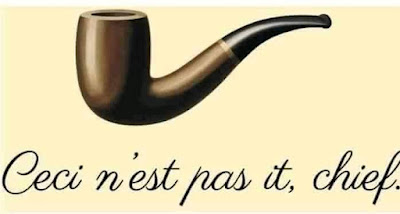Living with Your Work
"STOP MAKING 'ART' AND START MAKING YOUR WORK. This is at the top of the list for a reason -- namely, because it's so easy to make things that look like art, act like art, get sold like art, yet in the end aren't really art, but are phantoms, mere commodities or quantifiable, digestible sound bites. And unfortunately, you'll be encouraged to do this. In general, these are the things that art schools and the art world push you to make because they're legible and can be spoken of in ways that make sense to everyone: collectors and curators alike. This "art" has the correct visual markers and can slip easily into exhibitions and catalogue entries. At first, it seems really exciting to play this game, and it could get you a lot of mileage if you play it right, but in the end, these are really boring things that don't have a lot of depth to them. Try to resist this approach, because it's unsatisfying in the long run. Be prepared to be unpopular, unclassifiable, and perhaps even out-of-date in terms of what others (and this includes the market) desire of your art. You're in this for the long haul and in the end it's you who has to live with what you produce as your work." -- Stephanie Syjuco, from "A Redactive Pedagogy (Letter from the Field)" in Akademie X: Lessons in Art and Life
I was going to just drop this here like a hot mic and take off, but it's such a good passage from a piece of honest writing that I thought I'd spend some time with it.
 |
| This book: it's super useful for writer-artists too. |
First, M.S. and I are using Akademie X and the Syjuco piece in our Developing the Creative Imagination in the Arts class, so I've been immersed in the "lessons" offered by the book for the past week or so as we prepare for the course. One of the things that I love about the course is that it is so closely tied to our own careers -- it's really about process and risk and autonomous, self-directed exploration (albeit in a group setting). We encourage collaboration, too, but the course is very much focused on students exploring artistic mediums, pushing past limitations, working around obstructions, embracing restrictions, and finding one's creative identity (or something approaching it) by the end of the semester.
As the course instructors, M.S. and I model/exemplify the tenets of the course -- or, at least, we're supposed to. I'm trying to remember that this morning, in these black, pre-dawn hours, at the tail end of a week that has been admittedly far more stressful than I'd anticipated.
It's increasingly difficult for me to place writing time before the demands of my teaching career, particularly because I've had this phantom hanging over me (different from the phantoms mentioned by Syjuco) concerning the direction and purpose of my writing -- so that if, for a minute, I consider perhaps NOT doing course prep and using a small hour for my own particular work (like this blog), I feel guilty because my writing career has seemed kind of ... stuck?... small? ... (not sure about how I'd phrase it most accurately but I'm going to move on).
And it's not just the "career" part of my writing that seems stuck. Ultimately, if I'm a writer I'm creating work that is intended for an audience, and that's about purpose more than it's about the superficial trappings of what we call 'career'. I guess lately I've been thinking about audience and whether or not I have one -- and not necessarily in a self-pitying way (although, let me be honest, there's been a good deal of self-pitying going on in this blog). I'm thinking about who I'm writing for, who I create the work for, whether or not it does any real, good work in the world -- otherwise, what's the point? I want so much for my writing to be useful for something other than my own catharsis, my own navel-gazing, but what evidence exists that it IS serving some purpose other than meeting my own creative and psychological needs?
So back to Syjuco. What I like is that it's a reminder to stop thinking about audience so much -- even though I just spent some good real estate in this blog post on that very topic. I like that Syjuco pushes us to remember how little control we have over what other people want or need.
And I suppose we could consider her use of the words "phantoms" and "sound bites" as criticisms of the work that HAS been appreciated and desired by 'the market,' but I don't think that's her intention. I think instead that she's warning us against fashioning our work into pale approximations just to gain some mileage -- like, "sound bites" don't equal genuine conversation. "Phantoms" are shadows -- ephemeral and perhaps haunting in a dimly lit room, but hardly effective or memorable once the lights come on.
And M.S. brought up a good point when we were discussing this passage the other day -- about how audience demand, "the market," shifts so frequently, and that if you continue to work and share your work eventually the market may shift to the point where your art DOES meet a need other than your own, and when it does, if you've been working diligently, you're ready. Ready to share, ready to participate, ready to serve a purpose. Maybe that's what it means to be "in it for the long haul."
Or maybe I'm just really tired and I'm rambling. Not sure I'm expressing myself clearly or doing the Syjuco piece the justice it deserves. But I'm going to leave this here for now (mic drop!) and perhaps return to it when I have some more clarity and some more energy behind my thinking.
Onward.


Comments